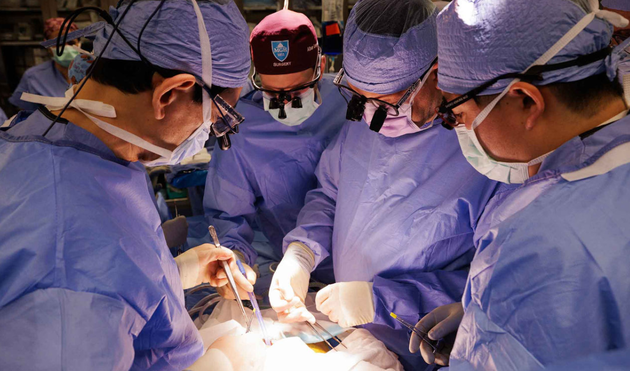A 67-year-old American man, Tim Andrews, has set a new record in xenotransplantation, surviving for nearly eight months after receiving a gene-edited pig kidney. This marks the longest a pig organ has functioned within a living human and represents a significant milestone in cross-species organ transplantation.
The surgery was performed at Massachusetts General Hospital (MGH). Lead Surgeon Dr. Tatsuo Kawai, Director of the Legorreta Center for Clinical Transplant Tolerance. Dr. Kawai told the National Business Daily (NBD) that the first six months after the surgery are the most critical for both the patient and the organ. "Managing fluid balances, the dose of immunosuppression, blood pressure, proteinuria etc. is more difficult than human-to-human transplants," he said.
The gene-edited pig kidney was developed by eGenesis, a company that recently received FDA approval to conduct a trial of pig kidney transplants in 33 patients aged 50 and over with end-stage renal disease.

Tatsuo Kawai Photo/ Massachusetts General Hospital
Key Factors Behind the Success
Andrews, the fourth living patient to receive a gene-edited pig kidney in the U.S., had been on dialysis for over two years with severe complications. Due to his O-type blood, he faced a 5-10 year wait for a human organ. The MGH team successfully transplanted a gene-edited pig kidney with 69 genomic edits.
Dr. Kawai explained to NBD that of the 69 genetic modifications, 59 were designed to inactivate porcine endogenous retroviruses (PERV). The remaining 10 major edits include deletion of three genes encoding enzymes responsible for producing carbohydrate antigens to which natural human antibodies bind. This step is particularly important, as binding of natural antibodies to these carbohydrate antigens is the initial trigger for xenograft rejection. By eliminating their expression on the pig cell surface, hyperacute rejection can be avoided.
In addition, the eGenesis pigs carry seven human transgenes introduced to replace key proteins important for compatibility with humans. These include two proteins that regulate complement activation, two that regulate coagulation, two that regulate inflammatory responses, and one that suppresses macrophage activity.
"However, there is still debate over which specific human proteins are truly necessary for successful xenotransplantation," Dr. Kawai noted.
Another patient, 54-year-old Bill Stewart, received a pig kidney transplant on June 14 and is approaching three months of survival, also under the same FDA-authorized study. The long-term survival of both Andrews and Stewart indicates significant progress, especially when compared to early attempts in the 1960s-90s, where patients survived only from four minutes to 70 days after receiving animal organs.

Photo/ Massachusetts General Hospital
Contrast with Previous Cases
Not all xenotransplantation cases have seen such success.
In March 2024, Richard Slayman received the world's first pig kidney transplant but passed away less than two months later. In a separate case, 53-year-old Tawauna Rooney had a gene-edited pig kidney transplanted in November 2024. After four months and nine days, she had to have the organ removed due to rejection.
Dr. Kawai said that pig kidneys with deletion of three major carbohydrate xeno-antigens plus several human transgenes can survive for long-term (>2 years) with an anti-CD154 mAb based immunosuppression. "In the NYU (where Tawauna Rooney's surgery was performed) case, costimulatory blockade (e.g., anti-CD154 or anti-CD40 antibody) was not employed. In nonhuman primate studies, conventional immunosuppression alone has proven insufficient to achieve long-term xenograft survival," Dr. Kawai added.

Photo/ Massachusetts General Hospital
Looking to the Future
Organ shortages are a global challenge, with over 100,000 people in the U.S. alone on transplant waiting lists. Xenotransplantation is seen as a promising solution.
Dr. Kawai said, "although we still have many obstacles to overcome, I am convinced this will be routine transplant procedure in 5 years. We still do not know which gene edits are essential for successful xenotransplantation. We continue to test various combinations of gene edits in preclinical studies to identify optimal gene edits."
Dr. Kawai also noted that the heart could be the next organ to see a breakthrough in xenotransplantation. "But the patients are much sicker and difficult to translate in humans. Liver and lung are still very difficult to achieve long-term survival. Need more time in preclinical studies for breakthrough."


 川公网安备 51019002001991号
川公网安备 51019002001991号





